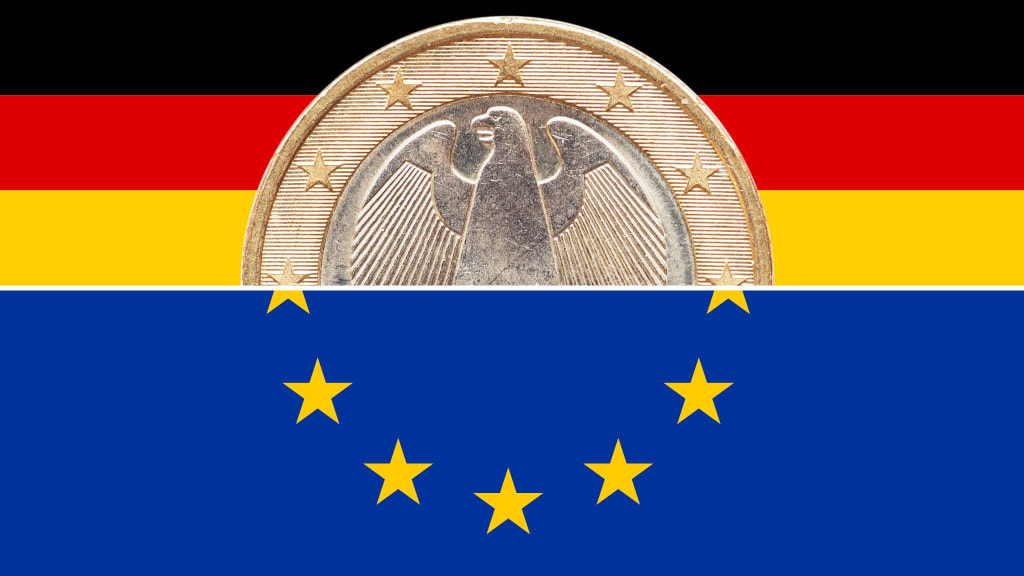European Economies at Breaking Point: Germany's Recession and its Implications for Europe and the World"
Examining the Causes, Consequences, and Urgent Challenges Ahead

Welcome, and thank you for being here!
Several reports have recently highlighted the challenges faced by European economies, suggesting that they are on the brink of a critical juncture. Germany, the largest economy in Europe and the fourth largest worldwide, has officially entered a state of recession. This development serves as a clear indication that Europe as a whole is facing an imminent breakdown. This article aims to explore the factors contributing to Germany's recession, analyze its implications for Europe, and assess the potential global ramifications.
Germany's descent into recession has raised concerns across the European continent. As a dominant economic force, Germany's struggles have broader implications for the stability and prosperity of Europe. Understanding the causes behind this downturn is crucial in comprehending the challenges that lie ahead for the continent and the rest of the world.
The recession in Germany can be attributed to a combination of factors. Declining manufacturing output and a lack of significant recovery efforts have played a central role in this economic setback. Furthermore, the negative impact of sanctions, which backfired on the German economy, has exacerbated the situation. These factors have culminated in Germany becoming one of the last European countries to exhibit any signs of recovery following the global pandemic.
The consequences of Germany's recession are not limited to its borders. The country's economic downturn reverberates throughout Europe, where other nations are also grappling with their own economic challenges. While not as severe as Germany's situation, these countries face a range of similar difficulties. This collective struggle exacerbates the overall fragility of Europe's economic landscape.
Germany's significance within Europe cannot be understated. As the largest economy in the region, Germany's gross domestic product (GDP) accounts for nearly three percent of the global GDP. Moreover, it contributes close to 30 percent of the European Union's overall output. The fact that Germany's economic performance is currently lagging behind other European nations and even the United States is a cause for concern.
Leading economists are increasingly acknowledging the severity of the situation. They highlight declining purchasing power, weakening industrial order books, and the adverse effects of various cyclical factors such as tighter monetary policy and weaker U.S. growth. Additionally, Germany's economic challenges are compounded by ongoing geopolitical tensions and the energy transition that the country is undergoing. Bloomberg's analysis indicates that Germany's growth is expected to fall behind the rest of the region for years to come, with the International Monetary Fund projecting it as the worst performing G7 economy in the present year and possibly beyond.
The energy crisis poses a significant obstacle to Germany's recovery. The country still grapples with unresolved energy issues, leading to soaring energy costs that are twice as high as those in the United States. This stark disparity underlines the economic burden faced by German businesses and consumers alike. Experts suggest that this challenging energy situation is likely to persist, as the European Central Bank continues to increase interest rates in an effort to combat inflation that remains well above the targeted two percent.
The implications of Germany's recession extend beyond its borders and pose a serious threat to Europe as a whole. The Eurozone, currently grappling with high energy costs, interest rate hikes, and persistent inflation, faces an uncertain future. To survive and thrive, Europe desperately requires access to affordable energy resources. However, the complexities involved in shipping natural gas and the expensive process of turning it into liquefied natural gas present significant hurdles to overcome.
Consequently, Europe must confront these challenges head-on and develop sustainable energy strategies to ensure its long-term stability. Failure to address these pressing issues could lead to a protracted decline and hinder the region's ability to overcome other crises, such as the ongoing migrant situation and geopolitical tensions.
In conclusion, the reports of European economies teetering on the edge of collapse underscore the severity of the situation. Germany's entry into recession serves as a clear warning sign of the potential breakdown looming over Europe






Comments
There are no comments for this story
Be the first to respond and start the conversation.